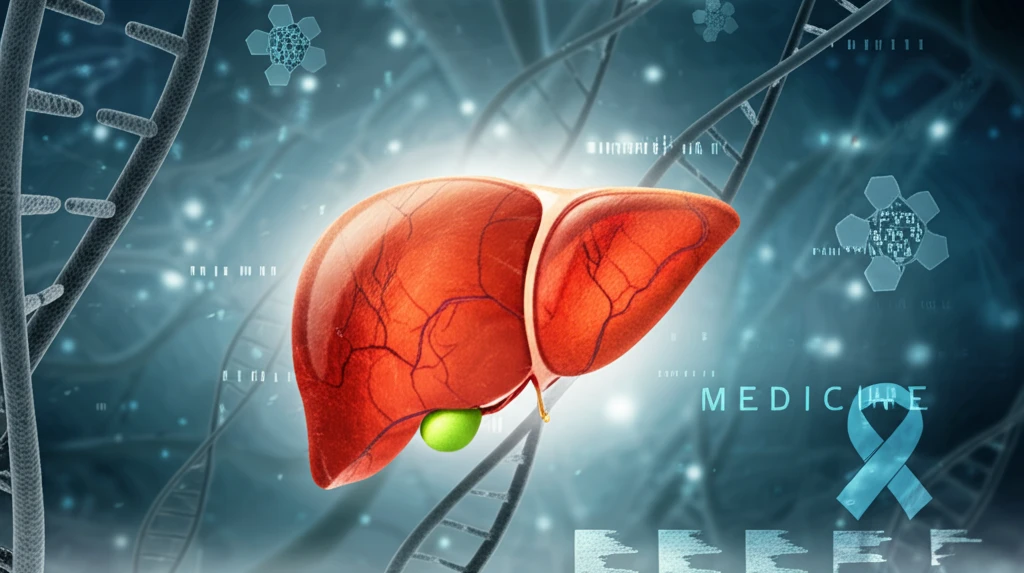
Liver Cancer Breakthrough: Personalized Radiation Therapy Shows Promise
"New research highlights the potential of genomically adjusted radiation doses (GARD) to improve liver cancer treatment and radiation dose personalization strategies"
Liver cancer, a formidable global health challenge, often demands intricate treatment strategies tailored to individual patient profiles. Traditional approaches sometimes fall short due to the diverse nature of tumors and varying patient responses. However, emerging research is paving the way for personalized interventions, promising more effective and targeted therapies.
A recent study featured in the International Journal of Radiation Oncology Biology Physics sheds light on innovative techniques in radiation therapy for liver cancer. The study explores the use of genomically adjusted radiation doses (GARD), a method that leverages a patient's unique genomic information to optimize radiation treatment. This approach aims to maximize the effectiveness of radiation while minimizing harm to healthy tissue.
This article delves into the details of these groundbreaking findings, explaining how GARD could revolutionize liver cancer treatment. We'll explore the underlying science, potential benefits, and what this means for patients and the future of cancer care.
Genomically Adjusted Radiation Dose (GARD): A Personalized Approach

The cornerstone of this innovative approach is the concept of personalized medicine, where treatments are tailored to an individual's unique genetic makeup. GARD takes this concept and applies it to radiation therapy. It uses a patient's genomic data, specifically their radiosensitivity index (RSI), to adjust the radiation dose. This adjustment aims to optimize the dose to effectively target the tumor while minimizing damage to surrounding healthy tissue.
- Sigmoidal Distribution: The relationship between radiation dose and tumor response followed a sigmoidal pattern, aligning with established tumor control probability models.
- Significant Differences: Variations in GARD high achievement were observed across different tumor types, underscoring the importance of personalized approaches.
- Impact on Tumor Types: The effect of radiation dose escalation/de-escalation varied among tumor types, with notable effects in oropharyngeal head and neck, thyroid papillary, and pancreatic adenocarcinoma cancers.
The Future of Liver Cancer Treatment
The development of GARD represents a significant step forward in the fight against liver cancer. By integrating genomic data into treatment planning, clinicians can make more informed decisions about radiation dosing, leading to improved outcomes and reduced toxicity. As research continues, personalized approaches like GARD hold the key to unlocking more effective cancer therapies and enhancing patient care. This personalized approach offers hope for more effective and less harmful treatments, revolutionizing the landscape of cancer therapy.
